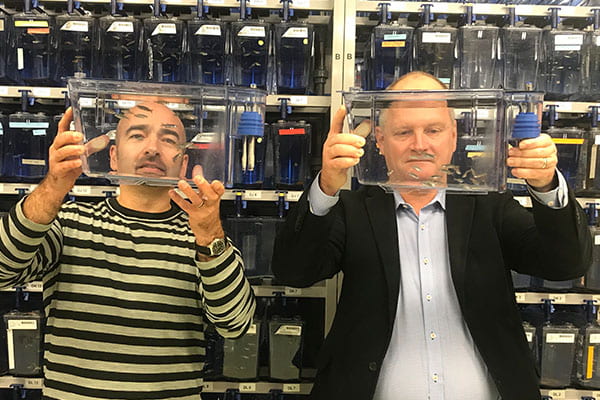From left: Associate Professor Chris Hall and Associate Professor Guy Warman
Associate Professor Chris Hall and Professor Stefan Bohlander (along with Associate Professor Guy Warman from the School of Medicine) have received a Marsden grant in this year’s round to understand how the immune system uses a molecular timer to fight bacterial infections.
The immune response to bacterial infection has the remarkable ability to become stronger when animals are active and the threat of infection is greatest. How the immune system synchronises heightened antibacterial activity with the active phase is very poorly understood. In a zebrafish infection model, they have preliminary data showing that neutrophils, the most abundant immune cell that specialises in destroying bacteria, somehow use a molecular timer to regulate their antibacterial activity. This exciting discovery supports their hypothesis that neutrophils possess a multi-component circadian clock that enhances the expression of antimicrobial genes during the active phase to support an anticipatory antibacterial response.
Using their unique collection of experimental techniques in zebrafish, they will fully characterise the antibacterial activities of neutrophils lacking key clock components at the functional and transcriptomic levels. They will then perform a genome-wide analysis of gene regulation to uncover how the clock components regulate gene expression in neutrophils. They expect this knowledge will reveal ways to manipulate this neutrophil timer to help fight infections.
